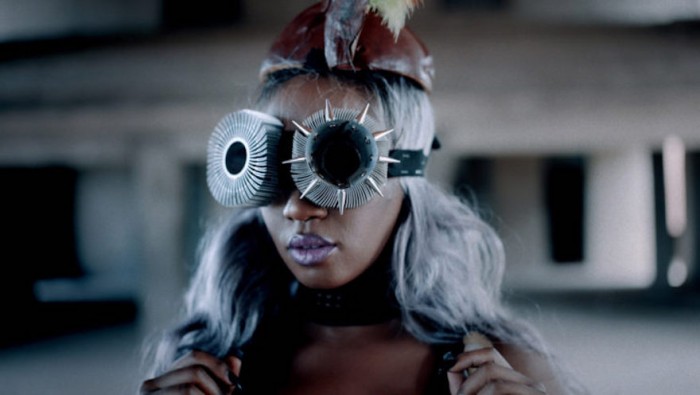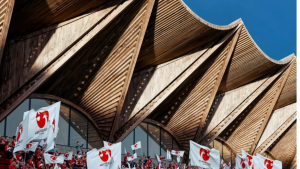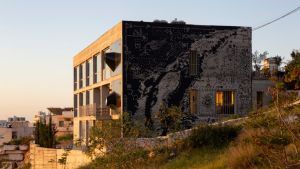From the Series

When Sunu Gonera was growing up in Zimbabwe, during the civil war, he used film as his escape. The Saturday screenings of Clint Eastwood westerns and Bruce Lee movies were his way to “disappear to somewhere else”. He even remembers his first school play at his first multiracial school. “The lights are low, the hall is full, and it was a Mark Twain play, Huckleberry Finn,” he says. “One character had a chain tied to his ankle and he was walking across the stage dragging this chain. He was this villain. It was so surreal for me.”
Now a film director with Egg Films in South Africa, he juxtaposes the polished appeal of box-office hits with what he describes as the “realness and rawness of Africa”. He channelled this passion into a music video for musician Khuli Chana sponsored by Absolut, challenging the way branded content is made in Africa.
Released at the end of last year, Khuli Chana’s One Source opens with the words “Africa is on fire” as blue flames blaze across a grey garbage dump before a pulsating beat and aggressive lyrics assert that “Africa is no longer riding shotgun”. In partnership with Native VML and directed by Gonera, the One Source campaign, which includes a music video and a series of web-based behind the scenes films, was created to make the one source of Absolut – an aquifer in Sweden – relevant in Africa. To do it, they tapped into the idea that Africa is the source of life.
Shot in Ghana, they brought together African artists and Design Indaba favourites like Osborne Macharia and the Venus Bushfires. They steered away from the tired orange and red palette used to represent Africa, as well as images of poverty usually used to represent strife in the region.
Gonera, as a filmmaker who works across music and advertising, is always striving for authenticity. It’s this authenticity that Gonera believes led to Cannes Lions 2017 stamp of approval. The work was awarded a Gold Lion in entertainment, two Silver Lions for entertainment and entertainment for music respectively, and a Bronze Lion in media. It was nominated for best music video at the South African Music Awards and Metro FM Awards, and was also the most nominated and most awarded campaign at South Africa’s IAB Bookmarks. At the same time, according to Pernod Ricard’s statistics released in February this year, Absolut Blue became the leading vodka premium brand within six months. “The consumer is not stupid,” explains Gonera. “I always say, trust the consumer. It was organic. It was about the collaboration. There was an authenticity.”
Gonera describes himself as an afrocentric artist. As more and more international artists moved to create work in Africa, more local guys began to see the potential. The hope, he says, is that the focus on Africa and African stories is not just a trend but is here to stay. This week, he released another project. This time for Metropolitan, which follows renowned musician Spoek Mathambo around Johannesburg. The message draws attention away from the financial giant, making the consumer the focus. He is also working on a feature film, Riding with Sugar, which he hopes to release next year.
His focus is not only on the work that can be done within Africa’s borders. No stranger to the Hollywood scene, Gonera’s first feature film Pride starring Terrence Howard was released in 2007. And now, he’ll be spending a short time in the States working on an episode for hit American political drama television series, Madam Secretary.
Back home, he says the industry is at an apex. “We’re having to, as filmmakers, change and adapt the way we think, especially with technology.”
Budgets are shrinking and expectations are rising. “You can’t keep coming in as a big brand wanting a R10 million job and then saying here’s R800 000. The other challenge is that there’s a massive saturation of filmmakers so the competition for every job has never been steeper.”
But these are all challenges he overcomes by staying fresh especially when it comes to telling an authentic African story. “It’s usually outsiders telling our stories. Let us tell our stories. I want an inside-out perspective – raw, real, this is who we are.”








